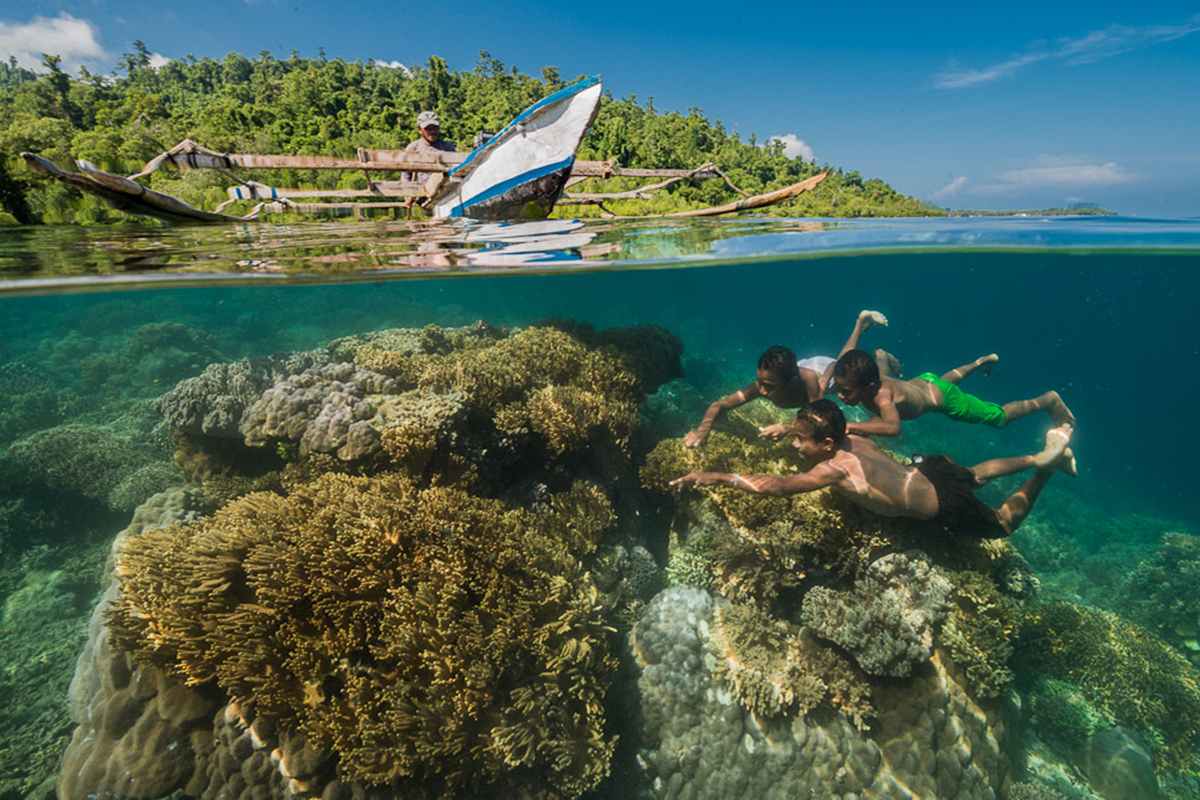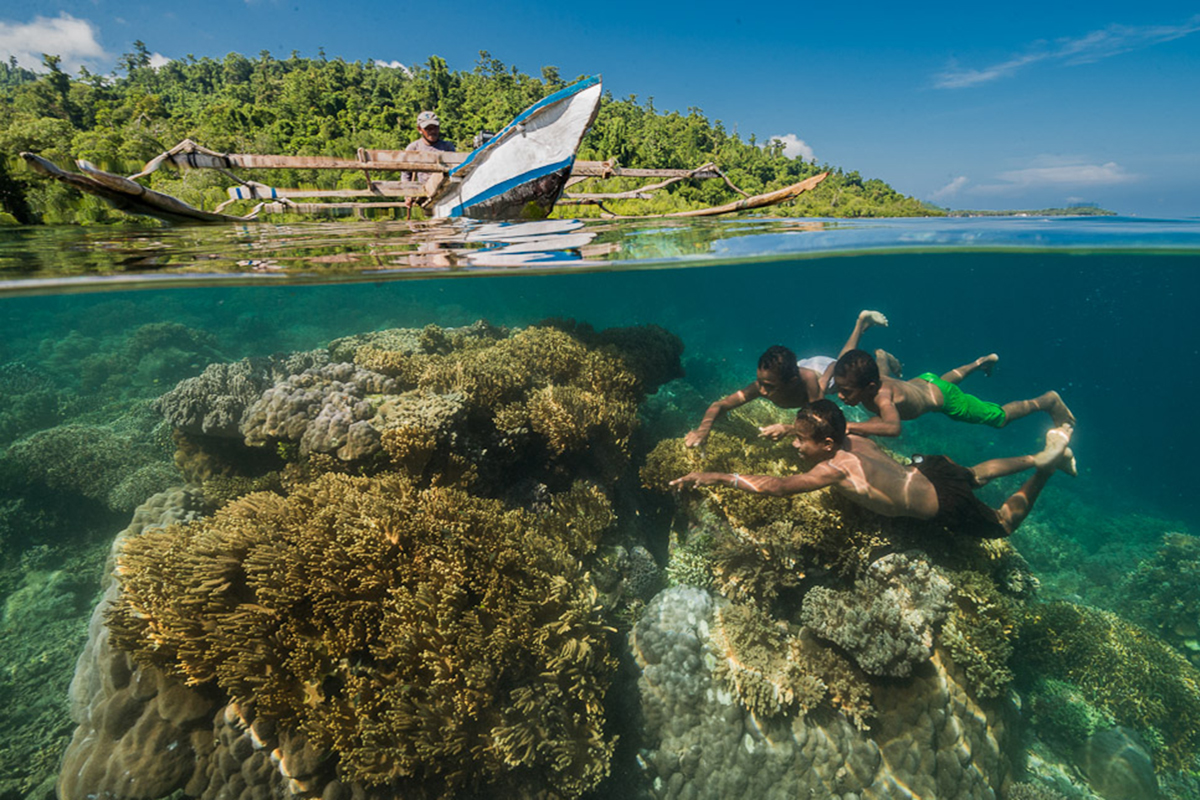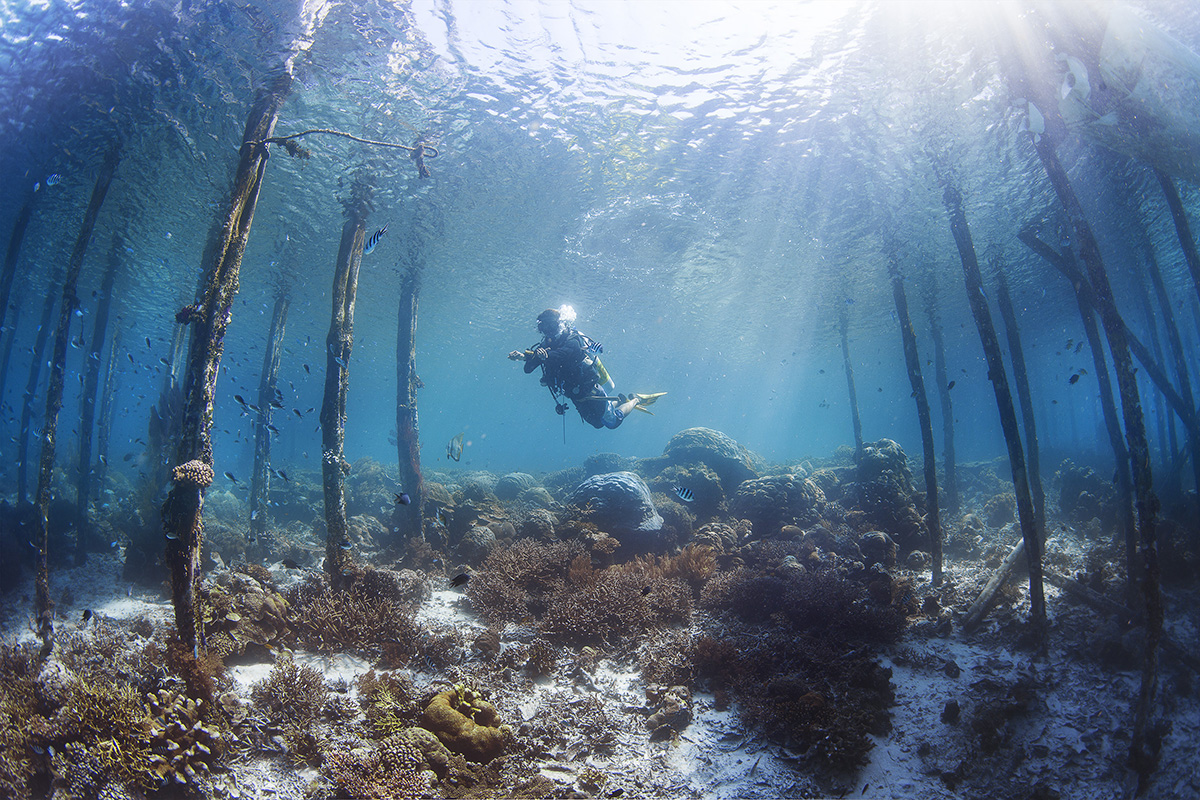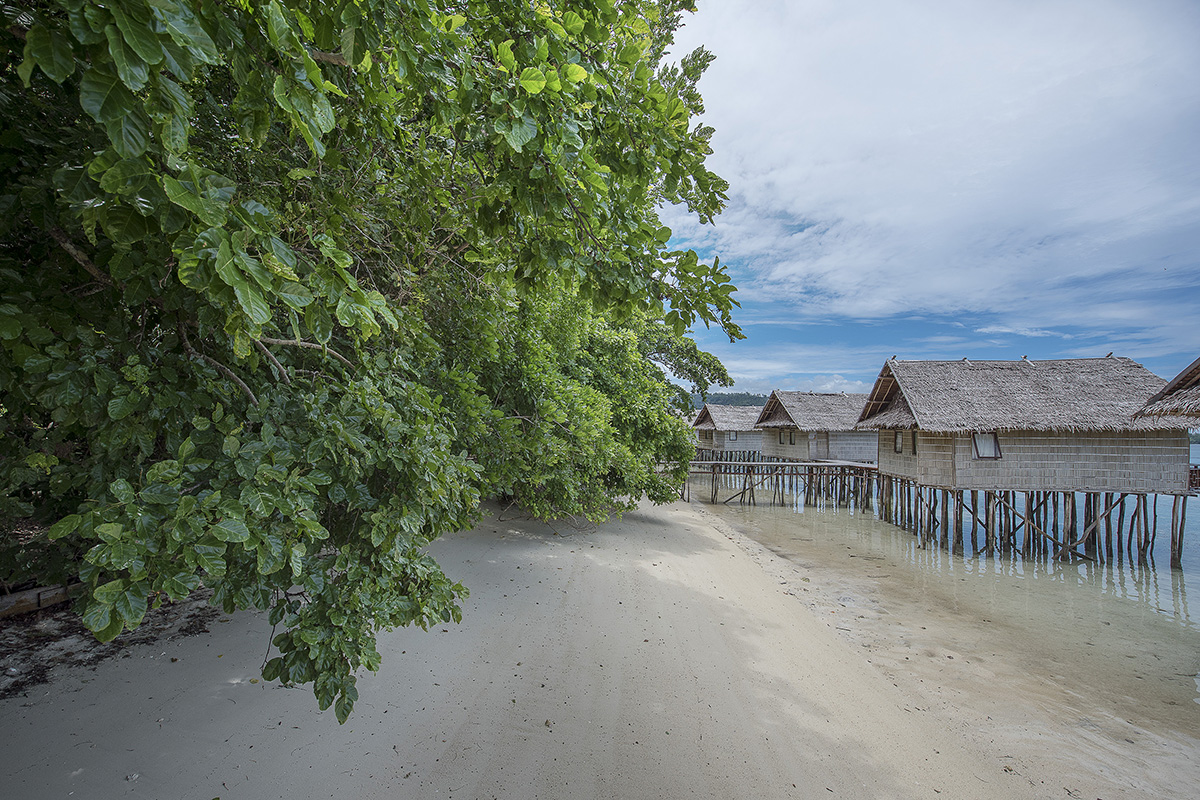Good News for Indonesia’s Seas
Indonesia is the world’s largest archipelagic country with a vast marine area of 5.8 million square kilometres. Knowing this, it should come as no surprise that the fishing industry in Indonesia is massive, coming only 2nd in the world to China.
Fishing and marine activities directly support at least 2.8 million households in Indonesia, making it one of the most important industries for the country economically and socially. However, for many years marine habitats have been suffering from the effects of destructive fishing methods and overfishing.
Destructive Fishing in Raja Ampat
The near-pristine marine habitat of Raja Ampat in West Papua was one area that was being damaged by blast and chemical fishing as well as lack of waste management.
In 2007 much of Raja Ampat became a Marine Protected Area, with additional areas being added in 2009. There are zero tolerance laws for destructive fishing and it is also 100% illegal to fish for rays, turtles and dugongs. In addition shark finning is illegal.
People are still able to fish in Raja Ampat but the strong laws protecting this incredible marine environment are essential.
What the government is doing to help?
Thanks to programs put into action by current President Joko Widodo and Minister of Maritime Affairs & Fisheries Susi Pudjiastuti, there has been significant progress in saving Raja Ampat’s marine environments.
Severely punishments are enforced in Raja Ampat and all around the Indonesian archipelago. Coastguards are well known to destroy boats and ships found to be involved in illegal activities in the area. Trawling has also been outright banned in Indonesia.
The result of these laws has been a 90% drop in foreign fishing vessels found in Indonesian waters. This is thought to have had a positive effect on local fishing industries, especially solo and small-scale fishing. In Raja Ampat destructive fishing has given way to high end dive tourism, which is not only great news for the environment, but the economy as well.
Some of these policies were met with some resistance, but the minister is adamant that the marine habitats and livelihoods of smaller-scale fishing industries are worth much more in the long run.
What’s next?
The Indonesian government plans to develop 12 integrated maritime and fisheries centers around the archipelago. They will provide boats, gear storage and infrastructure to allow village fishing industries to be self sufficient and sustainable.
In Raja Ampat, the coastguard and local people will continue to protect their waters and also educate children on the importance of maintaining the natural marine habitats, while resorts like Papua Paradise Eco Resort also do their part. Putting as little of a footprint on the environment ensures guests keep coming and respect their surroundings.
If you’d like to learn more about how you can make your visit to Papua Paradise and dives with Gangga Divers as low impact as possible read our article: Diving Responsibly in Raja Ampat
Do you think about environmental issues like this when you choose a place for a dive holiday? Let us know in the comments below.




